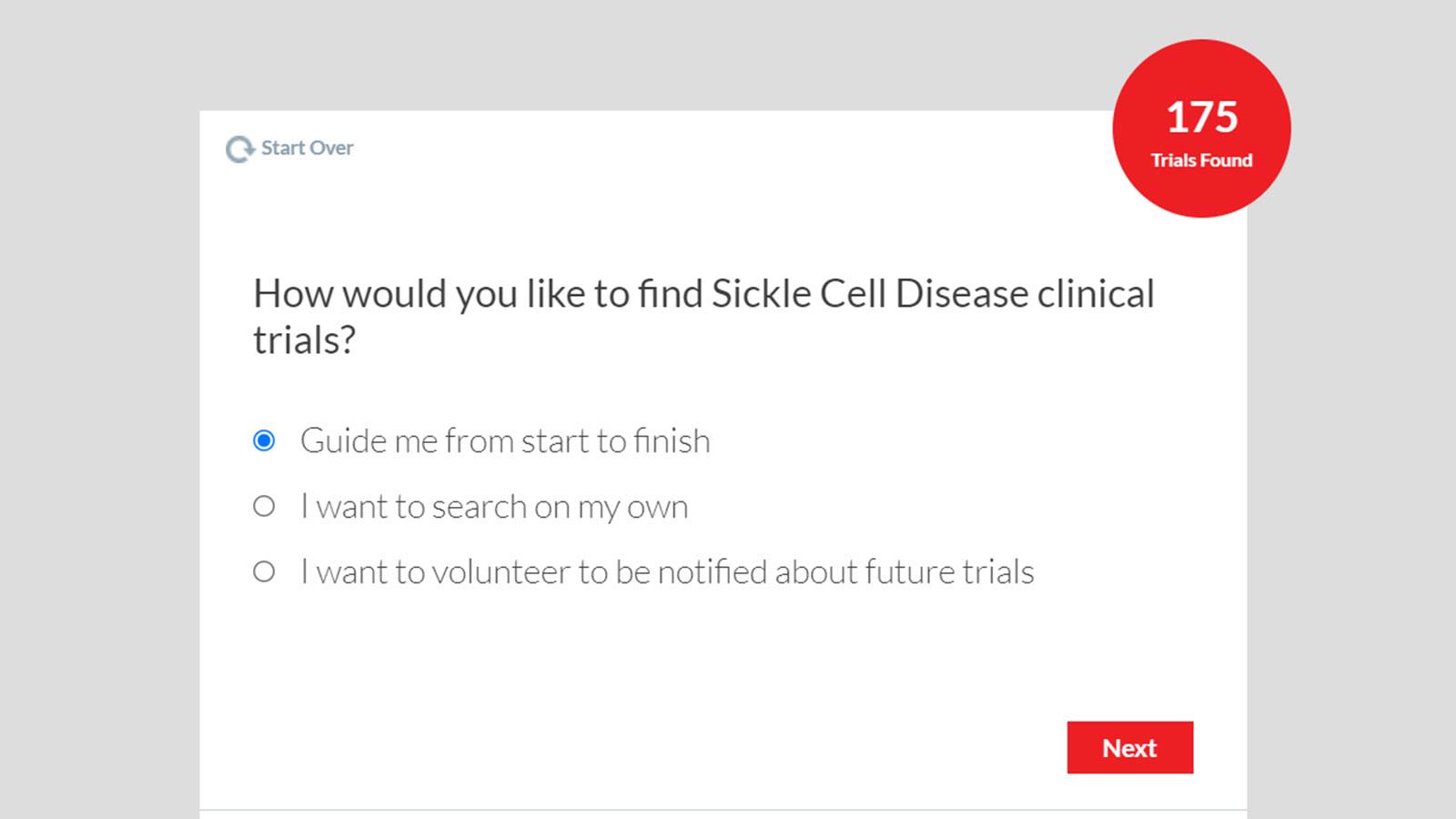Sickle cell disease patients have been waiting a long time for new treatments that will improve quality of life, relieve pain crises and limit the damage the condition inflicts on their bodies.
But before those treatments ever reach patients, they must be tested in rigorous, controlled clinical trials to ensure safety and effectiveness. Those trials need participants – something that the Sickle Cell Disease Association of America is doing something about. The patient advocacy group recently launched a clinical trial finder to make the process more welcoming for patients and to give them information to help them make informed choices.
In the United States, the hub for clinical trials info is at www.clinicaltrials.gov. It’s comprehensive, but likely overwhelming. The Sickle Cell Disease Association of America’s trial finder offers a start-to-finish guide.

“It can be a little intimidating if you don’t know what you’re looking for,” said Ashley Clark, the association’s Director of Programs and Special Initiatives. A mobile app is expected this summer.
Dr. Greg Kato, CSL Behring’s Global Product Leader for Hematology, praised the association’s clinical trial finder. Before joining CSL Behring, Kato spent decades in clinical practice caring for sickle cell patients at Johns Hopkins and the University of Pittsburgh’s Blood Science Center.
“Ashley and her team at SCDAA have produced the best SCD-customized clinical trial website I have ever seen. Users will be able to find our own open CSL889 clinical trial in their comprehensive, easy-to-use list of open trials for people living with SCD,” Kato said.
CSL Behring would be a new entrant in sickle cell care with CSL889, a form of plasma derived Hemopexin. It’s a naturally occurring protein produced in the body but found at decreased levels in patients with sickle cell disease. CSL889 is being developed for the treatment of acute vaso-occlusive crisis, a severe and painful complication in sickle cell disease patients.
Alongside research into new treatments, CSL Behring has been working for several years to increase access to clinical trials and help inform patients about how they work. The Sickle Cell Disease Association's new clinical trial finder is part of its strategy to provide patients with a full suite of online education, advocacy resources and support, she said. The group also wants to address misgivings patients might have about being part of a research trial.
“We understand the concern that may exist,” Clark said.
The history of medical research includes great advances alongside unethical practices that failed to protect the rights of study participants. Many of these unethical studies targeted subjects who were at a societal disadvantage, whether ethnically, economically or for some other reason. One of the most well-known examples of unethical clinical trial conduct is the Tuskegee Institute scandal – a syphilis research study infamous for its failure to properly inform and care for its participants – which lasted 40 years from 1932 to 1972.
Even though the Tuskegee experiments ended long ago, they continue to cast a shadow of distrust regarding clinical trials among the Black community. Stringent regulations are now in place to protect patient rights and emphasize information transparency based on international guidelines of good clinical practice. For instance, a participant, at any point, can choose to leave a clinical trial.
With the clinical trial finder and a host of other initiatives, the Sickle Cell Disease Association of America envisions a new era for patients. That era includes more research and more conversations about the ultimate goal: helping patients achieve “a prosperous and pain-free life,” Clark said.



